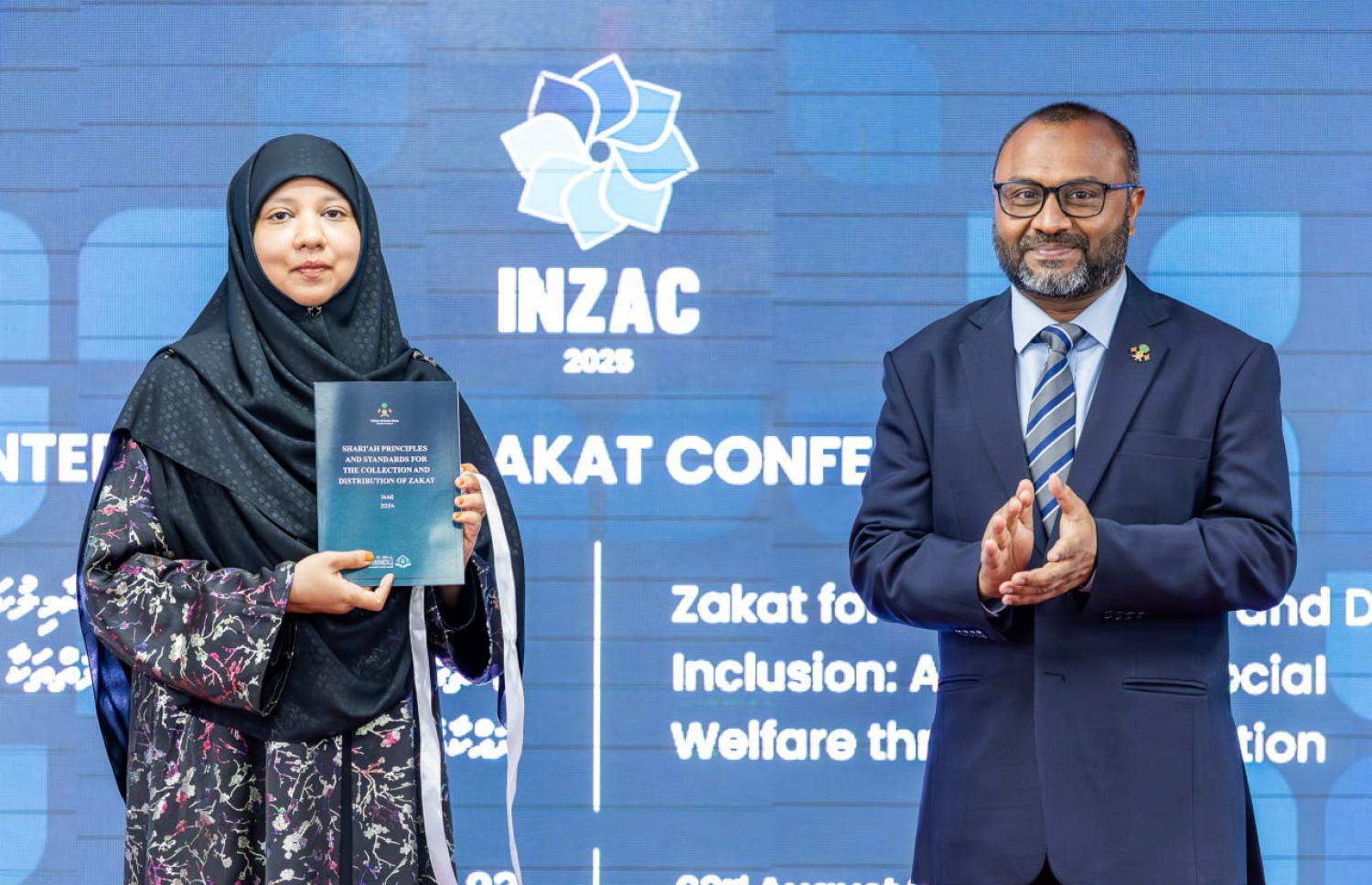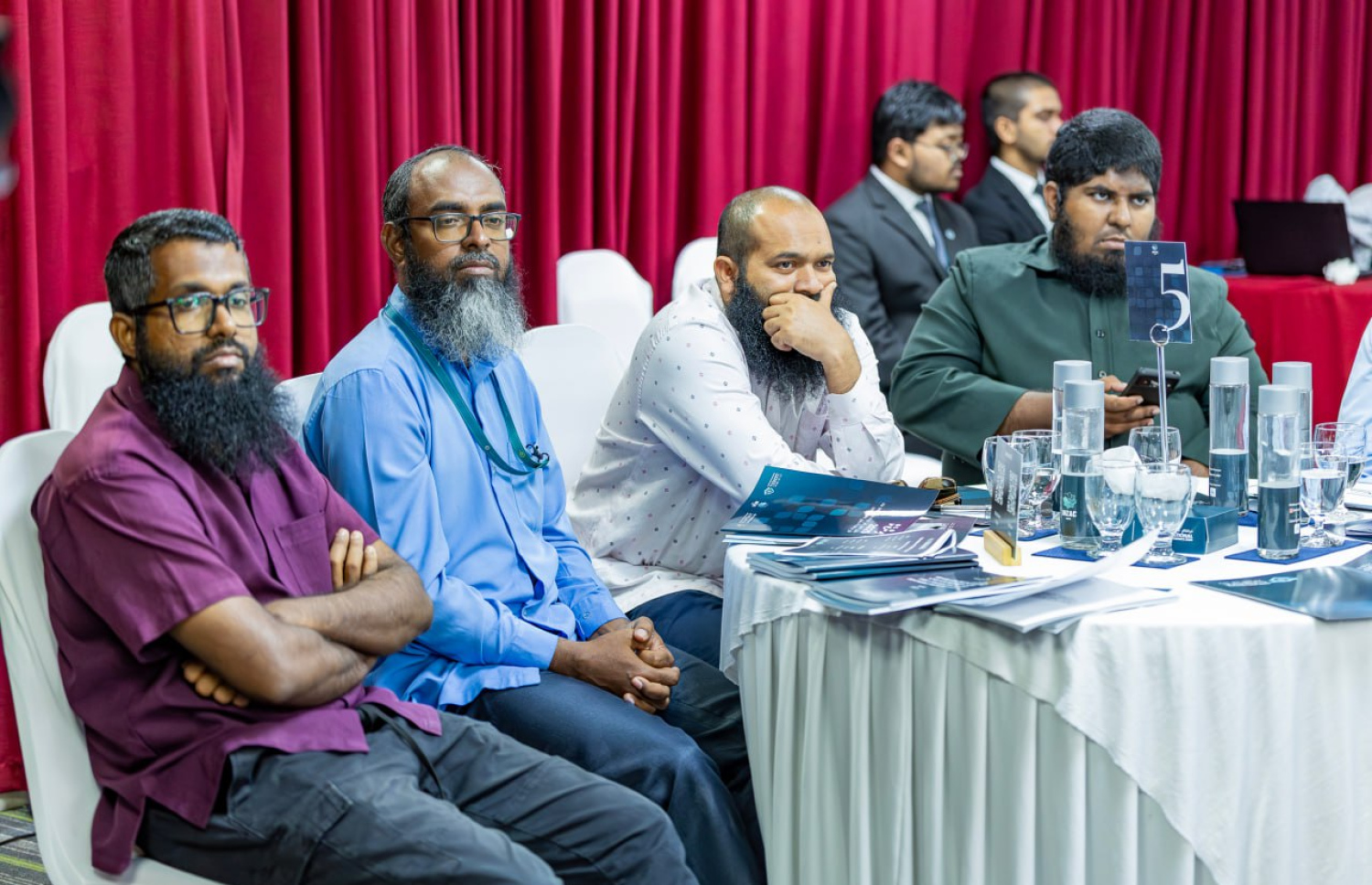Maldives has established a tax society and already follows tax laws, however, there is still a lack of awareness among the people of Maldives, as was stated by Malaysia’s INCEIF Dean Dr. Aishath Muneeza today while speaking at the opening ceremony of the Zakat International Conference.
While a Zakat-based bill (Zakat Act of Maldives) has been introduced to Parliament, one of the questions on a lot of people’s minds is that even though tax is being paid, the government is trying to expand the distribution of Zakat to the poor and needy by investing through the Zakat fund system. People are questioning the expenditure of Zakat funds in the investment of various services to society and the enrichment of its people, when government tax is supposed to be used for those services.
People are responsible for tax laws. Zakat is a divine duty. Taxes can sustain governments. But Zakat is what can truly help and uplift those who are vulnerable.Muneeza
Muneeza, who is a world-renowned expert on Islamic Financing, was able to provide some answers to those questions during today’s Zakat Conference.

Muneeza said that Maldivians need to be constantly reminded that Zakat is not just another form of tax collection.
“People are responsible for tax laws. Zakat is a divine duty. Taxes can sustain governments. But Zakat is what can truly help and uplift those who are vulnerable,” Muneeza said while speaking on the differences between tax and Zakat laws.
“Tax laws were created by human beings. Zakat is something that is described in the Quran, where it is described categorically what a person shall receive and is a divine obligation.”
And that is why a law specific to Zakat needs to be brought to light so that the Zakat system can be strengthened, said Muneeza. However, she goes on to say that the creation of a law alone is not enough. And with that in mind, new ideas and ways of thinking need to be utilised.

“The current rule of thumb is to deposit the Zakat funds as one lump sum to those who need it. And so Zakat funds are seen as a short-term consolation. However, Zakat is something that can be used in a much better manner as an Islamic Social Financing instrument,” said Muneeza.
“Zakat is not for the simple purpose of fulfilling an individual’s needs on a singular day. It is something that is supposed to transform the poor into the rich, something that changes a person from being reliant on it to being a person who can offer it.”
In order to increase Zakat awareness and for the purposes of modernization, Muneeza has suggested the following:
- To use technology in its full capacity.
- To digitize all things Zakat. Online portals, mobile apps and digital wallets can benefit those who deposit Zakat funds. For example, blockchain technology can be utilized to create a two-sided system.
- Utilizing Internet of Things (IoT) to monitor the poverty of households in real time so that those who are most in need can receive Zakat.
- More campaigns to be made to increase Zakat awareness. Maldivians need to be made aware of the most fundamental issues in Zakat.
- Zakat to be included in strategies of national development.
- To invest in Zakat studies and to educate people.
During today’s conference, Islamic Minister Dr. Mohamed Shaheem Ali Saeed has stated that Zakat-based projects that will help the poor and needy will begin, along with a bill that will be issued to the cabinet as it is currently being drawn up.
He went on to say that the bill was designed based on “the most recent studies and experience.” He also stated that the bill will also implement administrative management and judicial rulings, while also allowing investments, with these implementations not being in other Zakat laws.
During the conference, Shaheem said that Maldives aims to become a global leader in the field of Zakat and that efforts are being made to turn that aim into a reality.